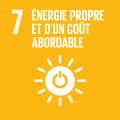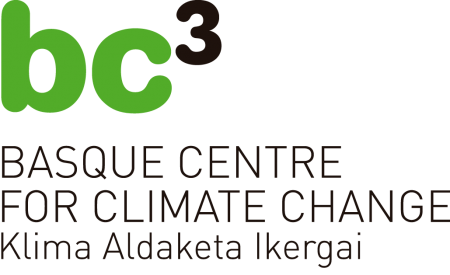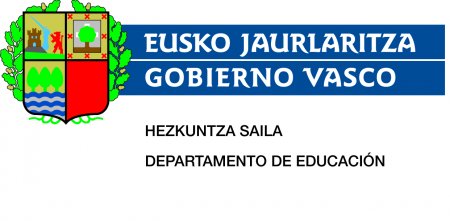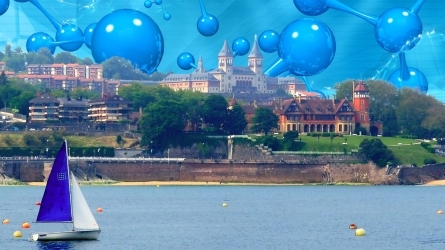
Nuevas respuestas a la crisis climática en el actual contexto geopolítico y energético
Description
BC3, en colaboración con la Fundación Cursos de Verano de la UPV/EHU, celebrará en 2022 la XII edición de su Curso de Verano. Este año se centrará en analizar las nuevas respuestas para la emergencia climática en la situación actual de crisis geopolítica y energética. Abordaremos cómo los acontecimientos recientes pueden reconfigurar la política climática en la Unión Europea y también sus implicaciones a nivel global. En este contexto surgen también nuevos enfoques en materia energética que conviene analizar con rigor y sosiego. Además, la situación generada por el aumento de los precios de la energía hace urgente reflexionar sobre las mejores políticas a desplegar en estos momentos y su impacto en la ciudadanía, así como valorar cómo estos acontecimientos pueden afectar a la opinión pública y a la importancia que ésta da a la crisis climática.
Estas y otras cuestiones de actualidad de la agenda climática serán abordadas por personas de prestigio pertenecientes al ámbito de la ciencia, las ONGs ambientales, las empresas energéticas, la administración y los thinks tanks.
El Curso de Verano contará, además, con un evento abierto a toda la sociedad y centrado en el País Vasco. En este evento personas destacadas de la sociedad vasca reflexionarán sobre los avances en el Basque Green Deal en el actual contexto internacional.
En la primera jornada se hará un balance de la cumbre del clima de Glasgow y, en general, de los progresos de las Conferencia de las Partes (COP) de la Convención Marco de las Naciones Unidas sobre el Cambio Climático. Se presentará la situación actual en materia política climática a nivel global y se abordarán las implicaciones del cumplimiento del Acuerdo de París a nivel energético, económico y tecnológico con los nuevos acuerdos sectoriales y las nuevas alianzas alcanzadas en Glasgow. Los retos de la transición energética y ecológica serán analizados desde la visión de las empresas energéticas y las ONGs ambientales. Finalmente, se debatirá sobre cómo acelerar la descarbonización en el horizonte 2030 para cerrar la “brecha de emisiones” existente y así conciliar los compromisos en el largo plazo y las acciones en el corto plazo.
En la segunda jornada se abordará la transición energética desde una perspectiva social, poniendo énfasis en las implicaciones en términos de empleo y transición justa, así como en su dimensión política e institucional. También, analizaremos las innovaciones sociales que serán necesarias para avanzar en esta transición y los nuevos mecanismos de participación en un contexto en el que una parte de la ciudadanía y especialmente las personas jóvenes piden tener un mayor protagonismo y mayor acción climática. Finalmente, se debatirá sobre los canales de participación que pueden ayudar a sumar a toda la ciudadanía en el cambio que necesitamos.
BECA: BC3 ofrece 20 becas para estudiantes menores de 30 años que estén cursando un grado o master en estos momentos.
CONDICIONES:
Para poder optar a esta beca es necesario enviar una carta de motivación con la siguiente información a: summerschool@bc3research.org
- Nombre completo
- Fecha de nacimiento
- Titulación que se esta cursando actualmente (adjuntar justificante de matrícula u otro documento oficial en el que se refleje tu matrícula en un grado/master o captura de pantalla del campus virtual en la que se vean tus datos personales y el grado/master que estas cursando).
- Campus en el que está cursando el grado/master en la actualidad (bizkaia / araba / gipuzkoa)
- Facultad en la que se está cursando el grado/master en la actualidad
- Respuesta a la siguiente pregunta: ¿por qué es importante para ti asistir a este curso de verano y acceder a una de nuestras becas? (mínimo 200 palabras, máximo 500)
Objectives
Abordar cómo los nuevos acontecimientos geopolíticos y energéticos pueden reconfigurar la respuesta a la crisis climática en la Unión Europea y sus implicaciones a nivel global.
Analizar el papel de las políticas públicas y de la ciudadanía en el actual contexto de crisis, sin olvidar que la crisis climática sigue siendo una de las principales amenazas para la sociedad según los últimos informes científicos publicados en 2022 por el IPCC.
Activity directed to
- University student
- Students not from university
- Teachers
- Professionals
- All public
Program
15-09-2022
Registro
Presentation by the Director of the activity
- María José Sanz Sánchez | BC3 - Directora Cientifica
- Mikel González Ruiz Eguino | BC3 - Investigador Senior
“Geopolítica del clima en un entorno convulso“
- Lara Esther Lazaro Touza | Real Instituto Elcano - Investigadora principal
“Propuesta para una reforma de los mercados energéticos “
- Pedro Linares Llamas | Universidad P. Comillas - Profesor
Break
“La aceleración de la transición energética como respuesta a los retos actuales“
- Unai Alaña Díaz de Guereñu | Iberdrola - Responsable de Análisis Económico Regulatorio
“Crisis Climática: de las musas al teatro“
- Cristina Monge Lasierra | Universidad de Zaragoza, Globernance, ItdUPM y BC3
Institutional Opening session. Speaking order:
- María José Sanz Sánchez | BC3 - Directora Cientifica
- Itziar Alkorta Idiakez | Cursos de Verano de la UPV/EHU - Directora Académica
- Arantxa Tapia Otaegi | Gobierno Vasco - Consejera de Desarrollo Económico, Sostenibilidad y Medio Ambiente
Round table: “¿Qué efectos tendrá la actual crisis geopolítica y energética en el cumplimiento de los objetivos climáticos?“
- Mikel González Ruiz Eguino | BC3 - Investigador Senior (Moderator)
- Cristina Monge Lasierra | Universidad de Zaragoza, Globernance, ItdUPM y BC3
- Lara Esther Lazaro Touza | Real Instituto Elcano - Investigadora principal
- Pedro Linares Llamas | Universidad P. Comillas - Profesor
- Unai Alaña Díaz de Guereñu | Iberdrola - Responsable de Análisis Económico Regulatorio
Break
Actividad Abierta: “¿Cómo acelerar la transición hacia las energías renovables en el País Vasco?“
“Presentación del Estudio 40dB sobre Oposición a las Renovables“
- Braulio Gómez Fortes | Universidad de Deusto
Round table: “Green Deal en el País Vasco “
- Victor Viñuales Edo | ECODES - Director Ejecutivo (Moderator)
- Javier Marqués | Ente Vasco de la Energía (EVE) - Director técnico
- Txelo Auzmendi Jiménez | Asparrena - Alcaldesa
- Unai Alaña Díaz de Guereñu | Iberdrola - Responsable de Análisis Económico Regulatorio
- Erika Martínez Lizarraga | Cooperativa Goiener - Presidenta
16-09-2022
Presentation by the Director of the activity
- Marta Escapa Garcia | UPV/EHU
“Emergencia climática en tiempos de confrontación“
- Antxon Olabe Egaña | Ex asesor MITERD
“Superar los obstáculos sociales para la transición energética desde una perspectiva de justicia social“
- Joaquín Nieto Sáinz | Ex director OIT
Break
“Emergencia climática, debilidad institucional y caos en el tablero geoestratégico mundial“
- Juanjo Álvarez Rubio | UPV/EHU - Globernance - Catedrático
“Cambio sistémico y democratización de la acción climática“
- Asunción Lera St Clair | BSC - Investigadora (Participation by zoom)
Round table: “¿Podremos abordar la emergencia climática y las crisis energéticas sin un cambio sistémico?“
- Marta Escapa Garcia | UPV/EHU (Moderator)
- Antxon Olabe Egaña | Ex asesor MITERD
- Joaquín Nieto Sáinz | Ex director OIT
- Juanjo Álvarez Rubio | UPV/EHU - Globernance - Catedrático
- Asunción Lera St Clair | BSC - Investigadora (Participation by zoom)
Closing session
Clausura
- Mikel González Ruiz Eguino | BC3 - Investigador Senior
Directors
Prof. Sanz holds a Ph.D. in Biological Sciences from the Universidad de Valencia (1991) and has expertise in several scientific areas like Ecophysiology, Air pollution effects, lower and higher plants, Atmospheric dynamics and chemistry, Nitrogen and carbon cycles, Greenhouse Gasses and other related gases, Greenhouse gas inventories, LULUCF and REDD+. She has been strongly involved in the policy dimension of Climate Change, guiding political decisions carried out at centres such as the FAO (United Nations Food and Agriculture Organisation) or the UNFCCC (United Nations Framework Convention on Climate Change). She has an expertise on multilateral processes, regulatory frameworks, policy measures and instruments of Climate Change Policy, and led the implementation of different programmes with a multidisciplinary-based approach.
Senior researcher at BC3 (Basque Centre for Climate Change) and associated professor at the University of the Basque Country. He has a PhD in Economics (2006, University of the Basque Country) and a degree in Engineering (2001, University of Deusto). He has been visiting scholar at Wageningen University (Netherlands) and Universidad Iberoamericana (Mexico). His main interests lie in the fields of energy and climate change economics. He is also interested in providing scientific support for decision making in the transition to a low-carbon, sustainable economy. His work has been published the leading journals in the field. He has worked for Basque and Spanish institutions and also lead several scientific projects funded by the European Commission. His doctoral thesis won him the Enrique Fuentes Quintana prize (FUNCAS, 2006). Since 2012 he has been the coordinator of the Low Carbon research line at BC3. He is currently vicepresident of the Spanish Association for Energy Economics (AEEE).
Speakers

Unai Alaña Díaz de Guereñu
Licenciado en ciencias económicas y empresariales, MBA Executive en Dirección de Empresas Energéticas, Master en economía industrial, con especialidad en el sector eléctrico, Master en Gestión para la competitividad de la empresa y Postgrado en mercados financieros, derivados y otros productos financieros. Actualmente Responsable de valoración económica regulatoria y liquidaciones del sector, dentro de la Dirección de Regulación de Iberdrola. Carrera profesional desarrollada íntegramente en el sector eléctrico, con 27 años trabajando en el ámbito de la regulación energética, primero con el Marco Legal Estable, participando en las negociaciones para el marco normativo de 1997, base del diseño actual y liberalización del sector, y después en todo el proceso de desarrollo y revisión del actual marco regulatorio energético.

Juanjo Álvarez Rubio
Juan José Álvarez Rubio is Professor of Private International Law at the UPV / EHU and co-founder and Secretary of GLOBERNANCE (Institute for Democratic Governance). He was Secretary General of the Basque Council of the European Movement (EUROBASK / CVME) (May 2003-2012) and currently continues to exercise his function as an expert for the EUROPEAN COMMISSION (General Directorate of Justice, Freedom and Security), on December 17, 2007, for the areas of Civil Justice, borders, protection of personal data and security areas. His lines of research focus on Migration Law and Private International Law, Maritime Law, International Trade Law and Human Rights, European Law and areas related to internal conflicts. He is the author of numerous scientific publications and leads the UPV / EHU's consolidated group of international law as IP. In 2015 he received the Eusko-ikaskuntza-Laboral Kutxa Award for Humanities, Culture, Arts and Social Sciences.

Txelo Auzmendi Jiménez
Nacida en Araia en 1960. Diplomada en Terapia Ocupacional he desempeñado mi profesión durante 35 años en los Servicios Sociales de Araba. He compaginado siempre mi actividad laboral con la actividad social, cultural y política del pueblo. Este compromiso me ha llevado a participar en el Ayto como concejal en dos periodos de mi vida, del 87 al 91 y del 91 al 2003. Y a partir del 2015 hasta hoy asumiendo la responsabilidad del gobierno municipal como Alcaldesa. También desde esa fecha formo parte de la Comisión Ejecutiva de EUDEL, y desde el 2016 asumí la presidencia del Consejo de Administración de la Central Hidroeléctrica de Araia.
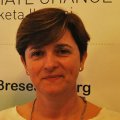
Marta Escapa Garcia
Associate Professor of Economics, UPV/EHU
Marta Escapa (Ph.D. in Economics, 1996, UPV/EHU) is Associate Professor at the University of the Basque Country (UPV/EHU). Her research and teaching activity has developed in the area of Economic Analysis and, specifically, in Environmental and Resource Economics. She has over 20 years of research and teaching experience that covers both undergraduate and graduate courses on Natural Resource Economics and Environmental Economics and her research has focused on issues like: International Environmental Agreements on Climate Change; Intergenerational Dimension of Climate Change, Economic Analysis of Fisheries Management; Environmental Fiscal Reform and Unemployment; Solid Waste Management using System Dynamics. The main results from this research have been published in peer review journals with impact factor (JCR) like: Journal of Environmental Economics and Management, Environmental and Resource Economics, Energy Economics or Ecological Economics.

Braulio Gómez Fortes
Soy investigador y profesor en el Centro de Ética Aplicada de la Universidad de Deusto y Doctor en Ciencia Política y Sociología por la Complutense. He desarrollado mi carrera de investigación en el Instituto de Ciencias Sociais de Lisboa, en el IESA-CSIC y en la Universidad de Edimburgo. Actualmente soy el Director del DeustoBarometro Social y el investigador principal del Regional Manifestos Project desde 2010,proyecto financiado por el Ministerio de Ciencia e Innovación dentro de los planes I+D+i.. Formo parte del Consejo de Dirección de Deusto Cities Lab. He dirigido diversos proyectos aplicados para introducir la participación de los ciudadanos en la toma decisiones en diferentes instituciones como Habitantes del Futuro para BBK Kuna . He publicado libros como "¿Cómo votamos en los referendums? (Libros La Catarata,2015) En busca del poder territorial (CIS,2019) o "La encuesta Deliberativa" (CIS,2010) junto a otros autores. Participo activamente en el debate público a través de diferentes medios de comunicación.

Lara Esther Lazaro Touza
Real Instituto Elcano
Lara Lázaro is a principal investigator at the Elcano Royal Institute and a professor of Economic Theory at the Cardenal Cisneros Higher Education Center (attached to the Complutense University of Madrid). PhD from the London School of Economics and Political Science (LSE) and Master in Environmental Assessment and Evaluation, also from the LSE. She also has a degree in Economics from the Autonomous University of Madrid. She has been a researcher at the Real Instituto Elcano's Energy and Climate Change Program (2009-2011), and previously worked at the LSE as a Postdoctoral Fellow and at Bloomberg. She has been the director of the Master in Environmental Management at the Instituto de Empresa, in which she has also taught classes on environmental policy and decision-making processes. As a consultant, she has worked for Abengoa Research on a project on the “Energy Transition and Climate Change”, as well as for the Repsol Technology Center in the HEREDERA project.

Asunción Lera St Clair
Barcelona Supercomputing Center (BSC)
Dr. Asun Lera St. Clair, philosopher and sociologist, is Director of the Digital Assurance Program in Research and Development of the DNV Group and Senior Advisor of the Terrestrial Services Unit of the Barcelona Supercomputing Center (BSC). She has more than 30 years of experience designing and leading interdisciplinary user-driven and solution-oriented research for global challenges at the interface between sustainable development and climate change, and more recently in harnessing digital technologies for sustainable development. She is a member of the Steering Committee of the International Science Council and of the joint HDRO Conversations on Rethinking Human Development project (https://stories.council.science/stories-human-development/). Asun Lera is a member of the Advisory Committee for Sustainable Development of the Generalitat de Catalunya (CADS) and is a member of the Boards of Directors of international, multilateral and intergovernmental organizations.
Pedro Linares is Professor of Industrial Engineering at the ICAI School of Engineering and co-founder and Director of Economics for Energy. He is also research affiliate at the Institute for Technology Research (IIT) and the BP Chair on Energy and Sustainability, and Research Associate at MIT-CEEPR. He currently serves as Vice-Rector for Research and International Affairs at Comillas Pontifical University, Madrid. He holds a M.S. and Ph.D. in Agricultural Economics from U. Politécnica, Madrid. His research focuses on the relationship between energy, economics and environment, and specifically on sustainable energy, renewable energy and environmental policy, and multicriteria methods applied to resource allocation. He has published about these issues in the major journals in the field. He has also been a consultant for several private and public institutions in Spain, Europe and Latin America. He has more than 20 years experience in working with public institutions.

Javier Marqués

Erika Martínez Lizarraga
Licenciada en Publicidad y Relaciones Públicas por la Universidad de País Vasco. Máster en Comunicación, RR.PP y Protocolo en ESERP Business School y Máster en Marketing y Gestión Comercial por la Universidad Rey Juan Carlos. Actualmente estudio el grado de Economía en la UOC. Mi carrera se ha desarrollado siempre en el sector servicios. Primero en el sector de la abogacía y más tarde en varias ingenierías dentro del sector de energías renovables. En 2015 entré en Goiener como coordinadora de comunicación. He participado en los órganos de toma de decisiones de la cooperativa y en 2020 fui nombrada Presidenta. También he sido miembro del Consejo Rector de Unión Renovables. Ponente en eventos como Conama, GSEF o más recientemente el Foro Iberoamericano de Economía Social

Cristina Monge Lasierra
Universidad de Zaragoza, Globernance, ItdUPM y BC3
Cristina Monge is a political scientist, professor of sociology at the University of Zaragoza, advisor to Ecodes and senior advisor to LlyC. Her areas of interest are sustainability and democratic quality, and especially governance for the ecological transition, an issue she is working on in research centers such as Globernance, BC3 and itdUPM. She is the author of 15M: A political movement to democratize society (2017), and co-author of Hackear la Política (2018), and The Social Initiative for Mediation of Water Conflicts in Aragon (2019). In addition, she is co-editor of the collection More Political Culture, More Democracy, and political analyst for El País, Cadena SER, Infolibre, and RTVE.
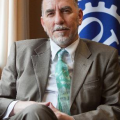
Joaquín Nieto Sáinz
OIT
He has been Director of the ILO since 2011. Previously, he was the Confederal Secretary for Occupational Health, Environment and Occupational Health of the Workers' Commissions, co-founder and president of ISTAS, SUSTAINLABOUR and the Governing Council of the University's Labor, Environment and Health Chair Polytechnic of Madrid. Represented workers at the European Commission Environment Forum, the United Nations Commission for Sustainable Development, UNEP and climate summits. He received the award for his personal trajectory in defense of the Earth in 2002, Via APIA from the Association of Environmental Information Journalists in 2003 and the National Award April 28 for the Prevention of Occupational Risks (2009). Author of the book ‘The Challenges of Climate Change’ and internationally recognized for his pioneering work in incorporating the environmental dimension to the union agenda, the labor dimension to the environmental agenda, and the just transition to the climate agenda.
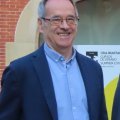
Antxon Olabe Egaña
Antxon Olabe, has been part of the Cabinet of the Fourth Vice President and Minister for Ecological Transition as an advisor on climate change and energy transition (July 2018 December 2020). Throughout that time, he has co-directed and coordinated the team in charge of the elaboration of the Integrated National Energy and Climate Plan 2021-2030 that the Government has presented to the European Commission, as well as the team in charge of the elaboration of the Long-term decarbonization strategy, 2050, delivered to the European Commission and the United Nations (under the Paris Agreement). He is the author of the book "Climate-environmental crisis. The time of responsibility" 2016 editorial Galaxia Gutenberg and has published 27 essays on climate change in media such as the Elcano Royal Institute, Foreign Policy, KEYS of practical reason. He has been Visiting Scholar at the Universities of Green Bay and St Norbert College (Wisconsin, United States).

Victor Viñuales Edo
ECODES
Sociologist. Co-founder and Executive Director of Fundación Ecología y Desarrollo (ECODES). Vice president of the Spanish UN Global Compact Network. Mr. Viñuales is a member of the Advisory Boards of the Biodiversity Foundation; Inditex; and Triodos Bank; and a member of the Panel of Experts in Sustainability for Sol Meliá. Since 2007 Mr. Viñuales is associate professor of the Executive Management Programme in Corporate Social Responsibility of the Instituto de Empresa (IE) Business School. He is a member of the Advisory Committee of Hazloposible Foundation; and also of CREAS, an organization that uses social venture capital as an investment instrument that guarantees economic returns and a positive social impact. Mr Viñuales is a member of the Spanish Cooperation Fund for Water and Sanitation created by the Government of Spain. He is a member of the Board of Greenpeace Spain; a member of the Council of Experts of Finresp, the Spanish Centre for Responsible and Sustainable Finance.
Registration fees
| Face-to-face | Until 15-09-2022 |
|---|---|
| 50,00 EUR | |
| 0 EUR |
| Live online | Until 15-09-2022 |
|---|---|
| 50,00 EUR | |
| 0 EUR |
Venue
Bizkaia Aretoa-UPV/EHU
Avenida Abandoibarra, 3. 48009- Bilbao
Bizkaia
Bizkaia Aretoa-UPV/EHU
Avenida Abandoibarra, 3. 48009- Bilbao
Bizkaia
Sustainable development goals
Agenda 2030 is the new international development agenda approved in September 2015 by the United Nations. This agenda aims to be an instrument to favour sustainable human development all over the planet, and its main pillars are the eradication of poverty, a reduction in equality and vulnerability and fostering sustainability. It is a unique opportunity to transform the world up to 2030 and guarantee human rights for all.

7 - Affordable and clean energy
Guaranteeing access to affordable, reliable, sustainable and modern energy for everyone. Key issues: universal access, increased proportion of clean energies, energy efficiency, research, fostering investments in energy infrastructures and clean technologies, modern and sustainable energy services.
More information